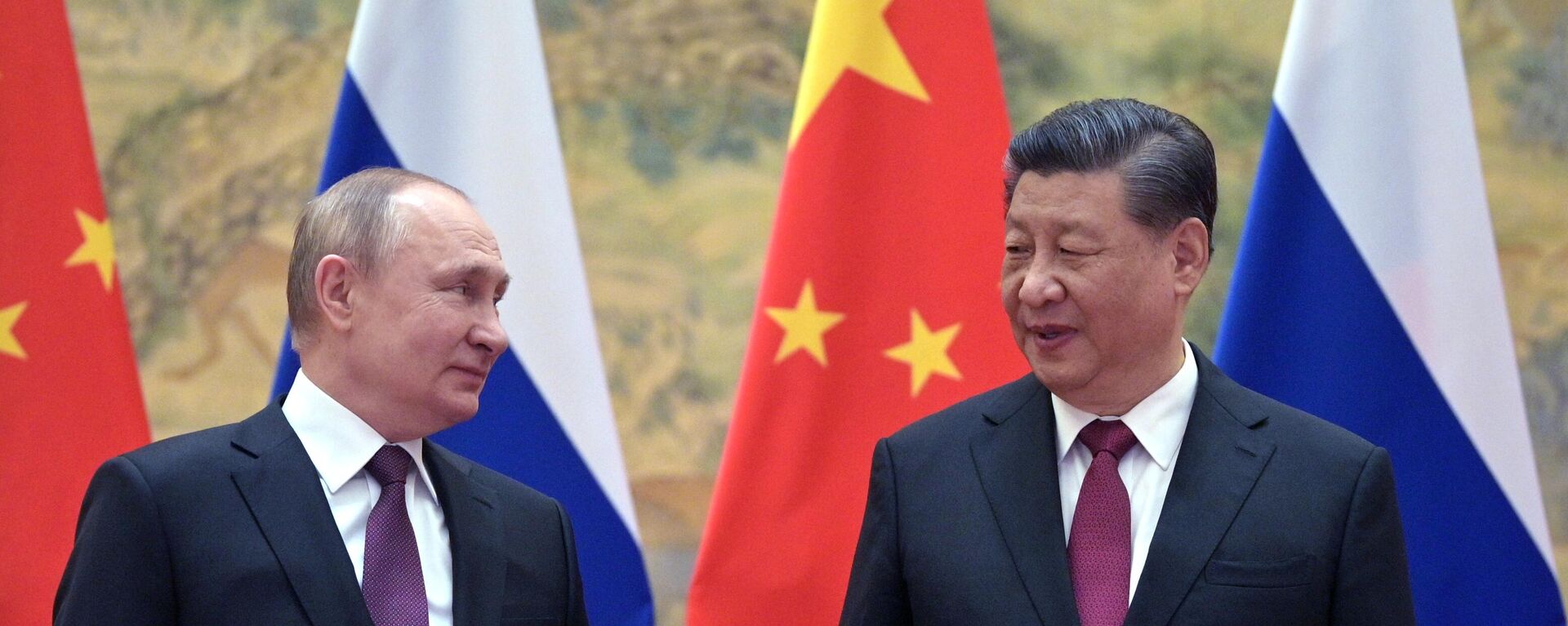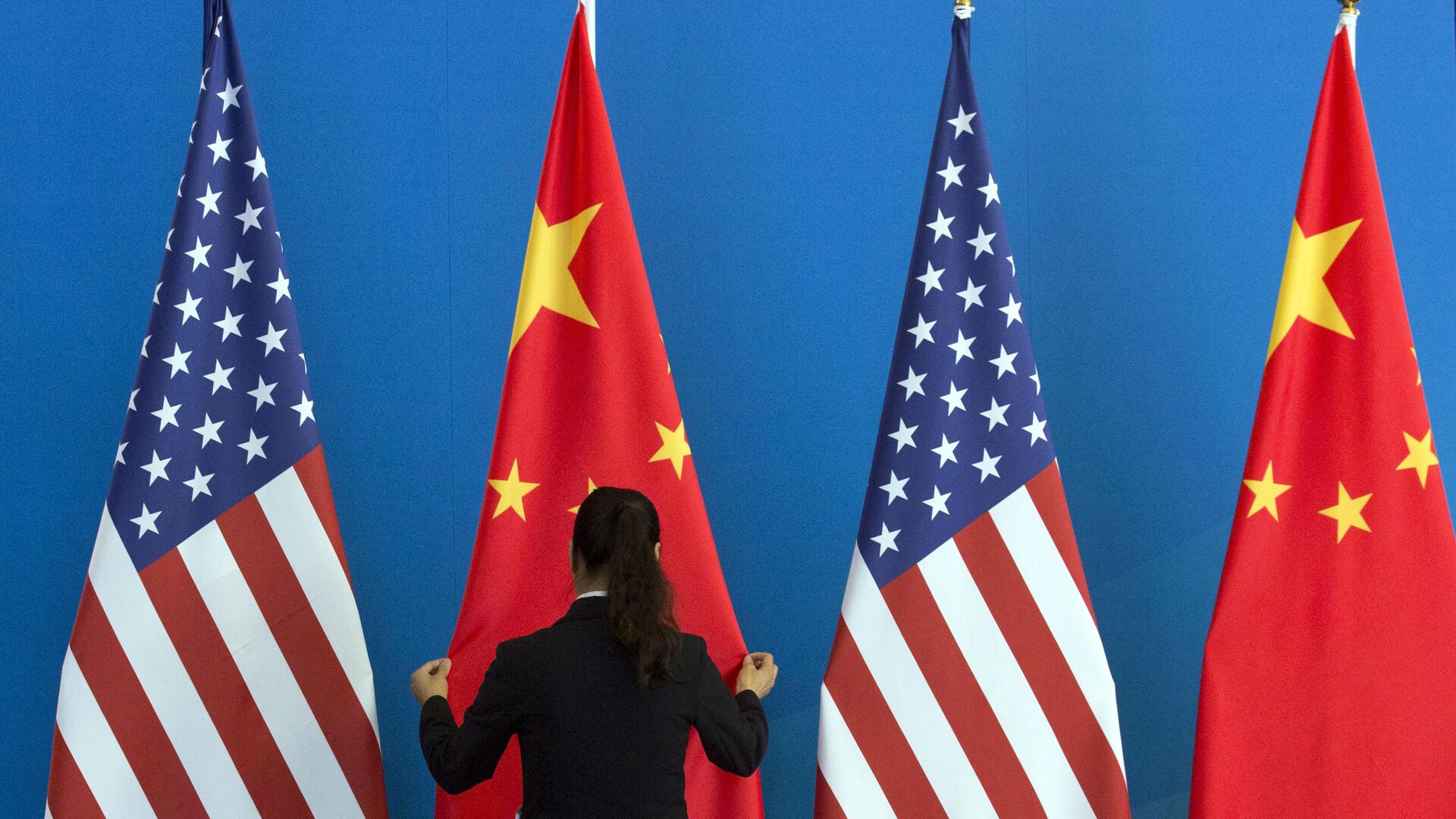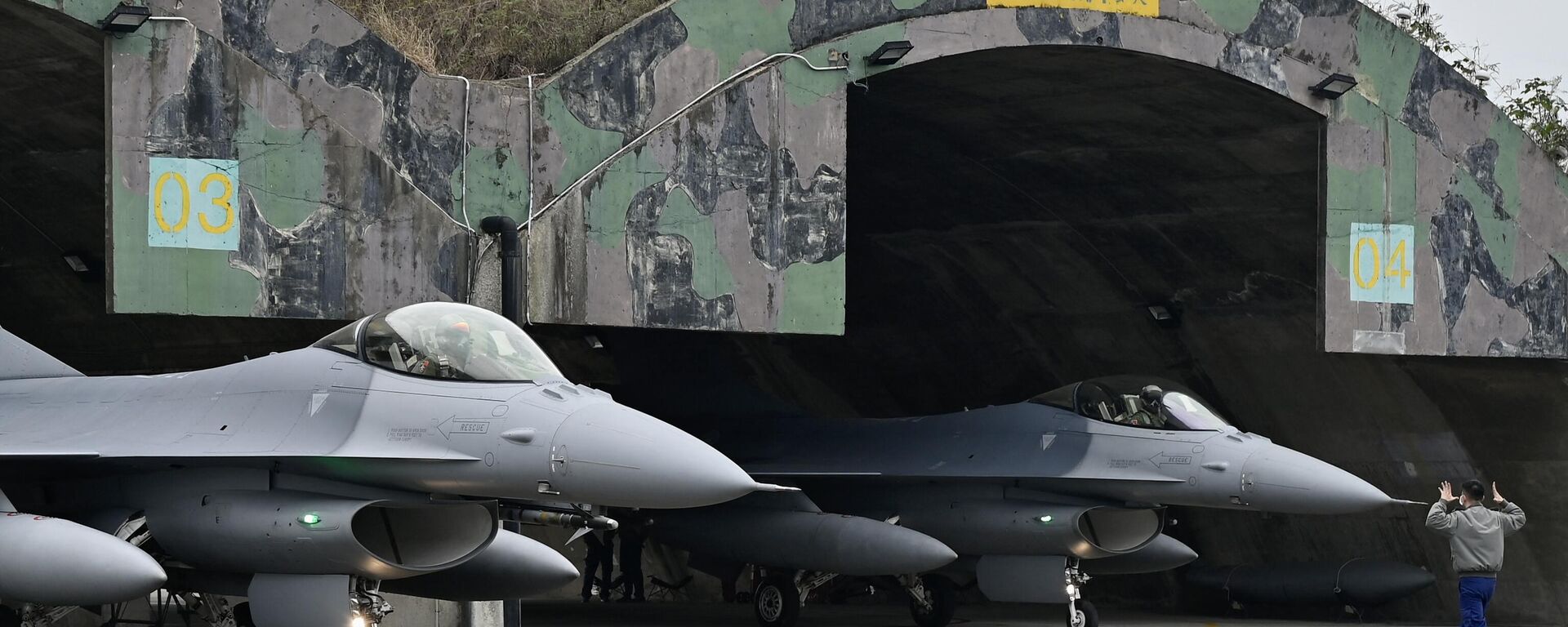https://sputnikglobe.com/20230508/us-disrupts-positive-momentum-in-relations-with-beijing-chinese-foreign-minister-says-1110189517.html
US Disrupts Positive Momentum in Relations With Beijing, Chinese Foreign Minister Says
US Disrupts Positive Momentum in Relations With Beijing, Chinese Foreign Minister Says
Sputnik International
The stabilization of US-China relations should be a priority after Washington disrupted the positive momentum achieved during the meeting between the leaders of the two countries in Bali, Chinese Foreign Minister Qin Gang said during a meeting with US Ambassador to China Nicholas Burns.
2023-05-08T05:05+0000
2023-05-08T05:05+0000
2023-05-08T11:24+0000
world
us
china
https://cdn1.img.sputnikglobe.com/img/07e5/01/12/1081799952_0:160:3073:1888_1920x0_80_0_0_9162f74d85eebf2ecaa044876a0419fe.jpg
"In November of last year, Chinese President Xi Jinping and US President Joe Biden held successful talks on the island of Bali and reached important consensuses. However, since then, a series of misguided actions and statements by the American side have disrupted the hard-won positive momentum in bilateral relations, relations between the countries have again hit the ice," Qin Gang said as quoted by China Central Television (CCTV) on Monday. The foreign minister added that the stabilization of bilateral relations is a top priority.Gang also called on Washington to stop supporting separatist forces in Taiwan."[The US] should properly approach the Taiwan issue … stop supporting and condoning the separatist forces of 'Taiwan independence'," Qin Gang told Burns, as quoted by China Central Television (CCTV) on Monday.The foreign minister also pointed out to Washington the need to respect China's "red lines" and stop violating its sovereignty, security and development interests.Taiwan has been governed independently from mainland China since 1949. Beijing views the island as its province, while Taiwan — a territory with its own elected government — maintains that it is an autonomous country but stops short of declaring independence. Beijing opposes any official contacts of foreign states with Taipei and considers Chinese sovereignty over the island indisputable.Despite officially declaring its adherence to the so-called One China policy, the US has maintained informal diplomatic ties with Taipei, while also providing military assistance to the island, citing the "Chinese threat" as justification. Beijing has repeatedly slammed Washington for being "a security risk creator in the region."Chinese Foreign Minister also shared his opinion on Moscow-Beijing ties in an interview to Saudi newspaper. He stated that the Russian-Chinese relations have overcome outdated models such as a zero-sum game and a confrontation between blocs and have been able to withstand different challenges."[The relations between Russia and China] have overcome such outdated models as the zero-sum game and the confrontation between blocs," Qin told.The Chinese foreign minister also said that the bilateral relations had been able to withstand different challenges because the countries found way to strategic mutual trust, adding that they did not pose a threat to other nations and reflected "right direction of historical development."Russia and China will continue to work on a comprehensive strategic partnership as well as promote the model of a multipolar world, Qin said.
https://sputnikglobe.com/20230506/us-to-reportedly-fast-track-500-mln-arms-for-taiwan-amid-narrative-of-china-threat-1110137406.html
https://sputnikglobe.com/20221001/putin-congratulates-xi-saying-beijing-moscow-develop-all-round-partnership-kremlin-1101404162.html
china
Sputnik International
feedback@sputniknews.com
+74956456601
MIA „Rossiya Segodnya“
2023
Sputnik International
feedback@sputniknews.com
+74956456601
MIA „Rossiya Segodnya“
News
en_EN
Sputnik International
feedback@sputniknews.com
+74956456601
MIA „Rossiya Segodnya“
Sputnik International
feedback@sputniknews.com
+74956456601
MIA „Rossiya Segodnya“
us-china relations, china-us tensions over taiwan, china's position on taiwan, us position on taiwan, chinese foreign ministry
us-china relations, china-us tensions over taiwan, china's position on taiwan, us position on taiwan, chinese foreign ministry
US Disrupts Positive Momentum in Relations With Beijing, Chinese Foreign Minister Says
05:05 GMT 08.05.2023 (Updated: 11:24 GMT 08.05.2023) BEIJING (Sputnik) - The stabilization of US-China relations should be a priority after Washington disrupted the positive momentum achieved during the meeting between the leaders of the two countries in Bali, Chinese Foreign Minister Qin Gang said during a meeting with US Ambassador to China Nicholas Burns.
"In November of last year, Chinese President Xi Jinping and US President Joe Biden held successful talks on the island of Bali and reached important consensuses. However, since then, a series of misguided actions and statements by the American side have disrupted the hard-won positive momentum in bilateral relations, relations between the countries have again hit the ice," Qin Gang said as quoted by China Central Television (CCTV) on Monday.
The foreign minister added that the stabilization of bilateral relations is a top priority.
Gang also called on Washington to stop supporting separatist forces in Taiwan.
"[The US] should properly approach the Taiwan issue … stop supporting and condoning the separatist forces of 'Taiwan independence'," Qin Gang told Burns, as quoted by China Central Television (CCTV) on Monday.
The foreign minister also pointed out to Washington the need to respect China's "red lines" and stop violating its sovereignty, security and development interests.
Taiwan has been governed independently from mainland China since 1949. Beijing views the island as its province, while Taiwan — a territory with its own elected government — maintains that it is an autonomous country but stops short of declaring independence. Beijing opposes any official contacts of foreign states with Taipei and considers Chinese sovereignty over the island indisputable.
Despite officially declaring its adherence to the so-called One China policy, the US has maintained informal diplomatic ties with Taipei, while also providing military assistance to the island, citing the "Chinese threat" as justification. Beijing has repeatedly slammed Washington for being "a security risk creator in the region."

1 October 2022, 06:45 GMT
Chinese Foreign Minister also shared his opinion on Moscow-Beijing ties in an interview to Saudi newspaper. He stated that the Russian-Chinese relations have overcome outdated models such as a zero-sum game and a confrontation between blocs and have been able to withstand different challenges.
"[The relations between Russia and China] have overcome such outdated models as the zero-sum game and the confrontation between blocs," Qin told.
The Chinese foreign minister also said that the bilateral relations had been able to withstand different challenges because the countries found way to strategic mutual trust, adding that they did not pose a threat to other nations and reflected "right direction of historical development."
Russia and China will continue to work on a comprehensive strategic partnership as well as promote the model of a multipolar world, Qin said.




